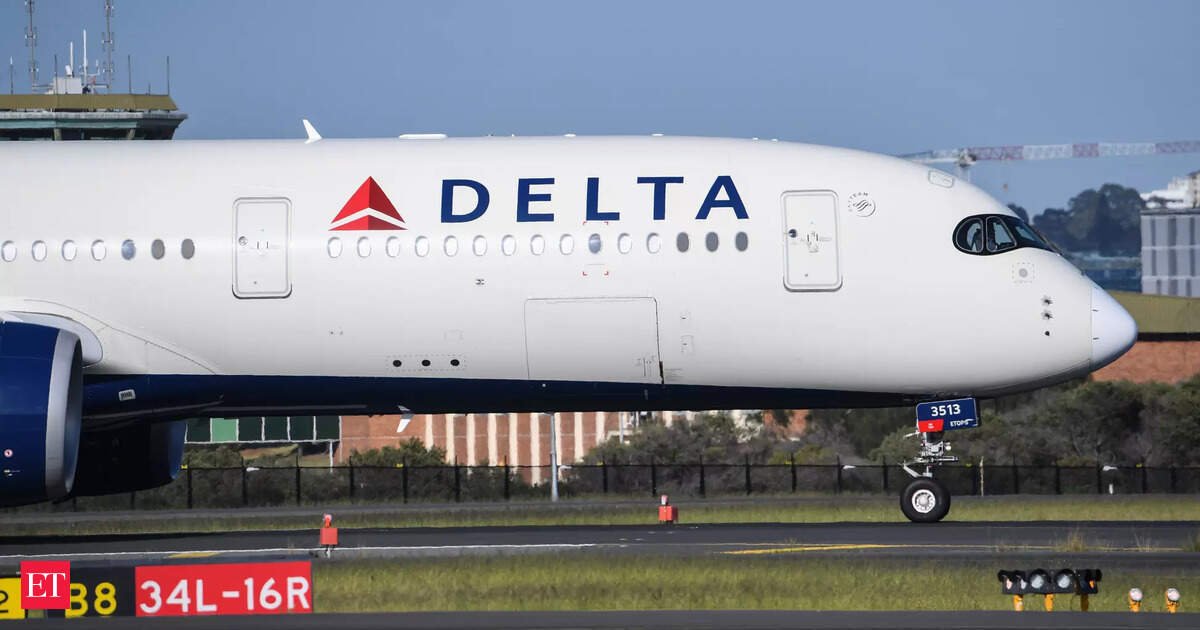AI in Travel
If I Were PM Modi, I’d Use AI to Offer Public Services to All in India: Vinod Khosla

In a recent podcast with Zerodha co-founder Nikhil Kamath, venture capitalist Vinod Khosla said India could offer core public services like education, healthcare, and legal advice for less than a dollar a month per person using AI. He pointed to government policy as a key factor in making this possible.
“Government policy will have a lot more to do with these things than people realise today,” Khosla said. “If I were PM Modi, I’d be doing everything I can to get those as common services.”
Drawing parallels with existing infrastructure like Aadhaar and UPI, he said AI could take this further. “As part of Aadhaar today, we have UPI, which takes away the need for Visa and Mastercard,” he said, calling the 3% transaction fee a tax that Indian consumers no longer pay.
Khosla estimated that AI-based public services could cost “a billion dollars a year a month for each of these or 10 billion a year,” calling the cost “so trivial.” He said these services could include “payment services, medical services, and education services.”
According to Khosla, the efficiency of AI makes it comparable to a private enterprise. “Because AI is doing the work, you don’t care about economic efficiency. Your government is as efficient as private enterprise in these services that can be made into AI. And they should be,” he said.
He argued that rural India could gain the most. “If you live in a village, you shouldn’t have to go take a day’s journey to get a basic medical checkup, and the doctor sees you for 5 minutes, and then you spend a day getting back to your village. It just shouldn’t [be].”
Referencing a document he wrote a decade ago, Khosla added, “I wrote about the fact that a village in India will get better cardiac advice, cardiac care than I can get at Stanford because Stanford will still in 15 years have their cardiologists, and in the village there’ll be AI.”
While he admitted that not all services could be free—“Housing will still be a material thing”—he said the government could offer expertise-based services widely. “Personal lawyers for everybody, personal tutors for every child or adult, personal medical care advice,” he listed.
“Half the economy could be covered in almost free services from the government,” he said. “To be honest, I’d love to do that in India. It’s such a no-brainer.” He further added that it should be made available in the next five years.
The post If I Were PM Modi, I’d Use AI to Offer Public Services to All in India: Vinod Khosla appeared first on Analytics India Magazine.
AI in Travel
Booking.com unveils its Global AI Sentiment Report

Booking.com has unveiled The Global AI Sentiment Report, a major new study exploring how consumers across 33 markets perceive and interact with artificial intelligence in everyday life and travel.
Drawing on responses from over 37,000 people, the report paints a complex picture: while excitement around AI is high, concerns about trust, transparency, and human oversight remain key barriers to broader adoption.
High interest, low trust
Globally, 91% of respondents to booking.com survey said they are excited about Artificial Intelligence. 89% expressed interest in using AI tools for future travel planning. However, only 6% reported fully trusting AI. 42% declared to always fact-check AI outputs, while 29% do so sometimes. Just 12% feel comfortable with AI making decisions without human input, and 10% are strongly opposed to it. Most consumers appear to value AI more as a support tool than a replacement for human judgment.
Booking.com report categorizes consumers into distinct groups: 36% are “AI Enthusiasts” intrigued by the technology’s potential, 13% are “AI Advocates” who champion its responsible adoption.
However, this excitement coexists also with significant caution. While 25% are “AI Detractors,” showing active resistance. Another 13% are “AI Cautious,” expressing reservations about its growing influence.
While 91% acknowledge at least one benefit—such as time-saving (51%), improved productivity (40%), or learning support (48%)—an equal percentage also reported at least one concern.
Regional gaps in trust and AI recognition
Regional variation reshapes Artificial Intelligence perception from one continent to another. Latin America (LATAM) leads in AI positivity, with 98% of respondents excited about the technology and 89% saying they understand how it works. Asia-Pacific (ASPAC) follows closely with 95% in excitement feeling and 82% being familiar with IA. ASPAC users have a widespread daily integration of AI, especially in transport and education.
Globally, while 77% have at least some trust in AI, nearly a quarter (23%) rarely or never trust information generated by it. It is particularly high in North America (NORAM) and Europe & the Middle East (EME). The two regions show higher distrust with 32% and 29% of respondents respectively feeling cautious at AI-generated information. Consumers here are highlighting a broader demand for transparency and reassurance as adoption grows.
In the travel sector, AI is already widely used. Two-thirds of respondents have relied on AI for trip planning, booking, or in-destination assistance. Travelers primarily use AI to research destinations (38%), find cultural experiences (37%), and get restaurant tips (36%). Once on the ground, translation tools (45%) and navigation help (40%) are the most common applications. Photo editing tops AI usage post-trip.
The report also highlights growing demand for ethical AI. A majority of travelers (71%) value tools that help avoid crowds, and 60% want Artificial Intelligence to prioritize experiences that support local communities.
“Generative AI represents one of the most significant technological shifts of our era. It fundamentally reshapes how consumers engage with the world around them, ” says James Waters, Chief Business Officer at Booking.com. “But beyond innovation, our focus must be on transparency, trust, and responsibility as we move into the next chapter of travel technology.”
Related News Stories: Amex GBT integrates hotel marketplace with Concur Travel platform AI takes the lead in travel booking – but human touch remains the … Booking.com to cut jobs With Alipay+ Voyager, Ant International provides an AI travel … Global Travel Tech Leader HotelPlanner Partners with UPA Asia … Smarter Reservations: AI, Customer Experience, and Dylan … Hostaway launches full suite of AI tools HotelPlanner partners with The Lawn Tennis Association B2B booking Teldar Travel enters the U.S. and Middle East markets HotelPlanner: How AI and human booking agents can thrive together
AI in Travel
Air Travel Pricing: Delta’s AI fare strategy: Cheaper flights or high-tech price hikes?

How it works: AI-powered dynamic pricing
Delta’s AI system, developed by Israeli startup Fetcherr, analyzes a wide range of data in real time such as demand trends, market fluctuations, booking pace, and competitor pricing. Rather than using static fare charts, the AI suggests optimal prices that can adapt instantly to changing conditions.
Delta President Glen Hauenstein called it a “reengineering” of pricing science and noted early trials have led to “amazingly favorable unit revenues,” a metric used to gauge profitability per seat.
Concerns over fairness and transparency
Despite Delta’s optimism, the move has sparked concern among lawmakers and consumer advocates. Senators Mark Warner, Richard Blumenthal, and Ruben Gallego sent a letter to the airline questioning whether AI driven fare decisions could lead to “surveillance pricing.” Their concern: that AI might use personal data to charge individuals based on their perceived willingness to pay.
Delta responds: No personal data used
Delta has firmly denied using personal information to set prices. In a statement, the airline clarified that it does not use browsing history, financial details, or customer profiles. Instead, pricing is based on anonymized market data and traditional travel factors like origin, destination, date, seat class, and refundability. “All customers have access to the same fares,” a Delta spokesperson emphasized.
A broader trend in air travel?
Industry analysts suggest this is just the beginning. As airlines compete for profitability in a volatile market, many are likely to adopt AI tools to gain an edge. While dynamic pricing isn’t new, the speed and granularity offered by AI raises concerns about fairness and transparency.Consumer rights groups are keeping a close eye on the issue. A new bill in Congress, called the Stop AI Price Gouging and Wage Fixing Act, seeks to ban the use of consumer profiling in pricing and could impact how AI tools like these are used in the future.
FAQs
Q1. What is Delta’s AI pricing system?
A1. Delta is using artificial intelligence to set ticket prices based on real-time market data. The system is designed to optimize fares depending on demand, competition, and booking trends.
Q2. How could AI-based pricing affect travelers?
A2. Travelers may see more frequent changes in fares based on demand and timing. It might get harder to know when you’re getting the best deal.
AI in Travel
New York City Launches New AI Travel Guide

Travelers heading to New York City now have one more tool in their arsenal to help them experience the city, an AI chat platform called Libby, short for Liberty.
The new AI tool, available on New York City Tourism + Conventions’ website on the lower right-hand side, along with the city’s official Instagram and WhatsApp, is available in 60 different languages and will provide quick answers to any travel or tourism-related questions about the city.
The responses travelers receive are personalized with extensive data from the tourism organization.
“We’re pleased to unveil Libby, the official AI chat platform for exploring New York City,” says Julie Coker, president and CEO of New York City Tourism + Conventions. “As we gear up for America 250 celebrations and the 2026 FIFA World Cup, we’re proud to offer this free, innovative tool in 60 languages that empowers global visitors to craft unique itineraries and discover unforgettable experiences across all five boroughs.”
New York City will also promote Libby at 4,000+ LinkNYC screens at transit stops. Libby was created in partnership with GuideGeek AI technology from Matador Network.
For the latest travel news, updates and deals, subscribe to the daily TravelPulse newsletter.
Topics From This Article to Explore
-

 Brand Stories2 weeks ago
Brand Stories2 weeks agoBloom Hotels: A Modern Vision of Hospitality Redefining Travel
-

 Brand Stories2 weeks ago
Brand Stories2 weeks agoCheQin.ai sets a new standard for hotel booking with its AI capabilities: empowering travellers to bargain, choose the best, and book with clarity.
-

 Destinations & Things To Do2 weeks ago
Destinations & Things To Do2 weeks agoUntouched Destinations: Stunning Hidden Gems You Must Visit
-

 Destinations & Things To Do2 weeks ago
Destinations & Things To Do2 weeks agoThis Hidden Beach in India Glows at Night-But Only in One Secret Season
-

 AI in Travel2 weeks ago
AI in Travel2 weeks agoAI Travel Revolution: Must-Have Guide to the Best Experience
-

 Brand Stories1 month ago
Brand Stories1 month agoVoice AI Startup ElevenLabs Plans to Add Hubs Around the World
-

 Brand Stories4 weeks ago
Brand Stories4 weeks agoHow Elon Musk’s rogue Grok chatbot became a cautionary AI tale
-

 Brand Stories2 weeks ago
Brand Stories2 weeks agoContactless Hospitality: Why Remote Management Technology Is Key to Seamless Guest Experiences
-

 Asia Travel Pulse1 month ago
Asia Travel Pulse1 month agoLooking For Adventure In Asia? Here Are 7 Epic Destinations You Need To Experience At Least Once – Zee News
-

 AI in Travel1 month ago
AI in Travel1 month ago‘Will AI take my job?’ A trip to a Beijing fortune-telling bar to see what lies ahead | China

You must be logged in to post a comment Login